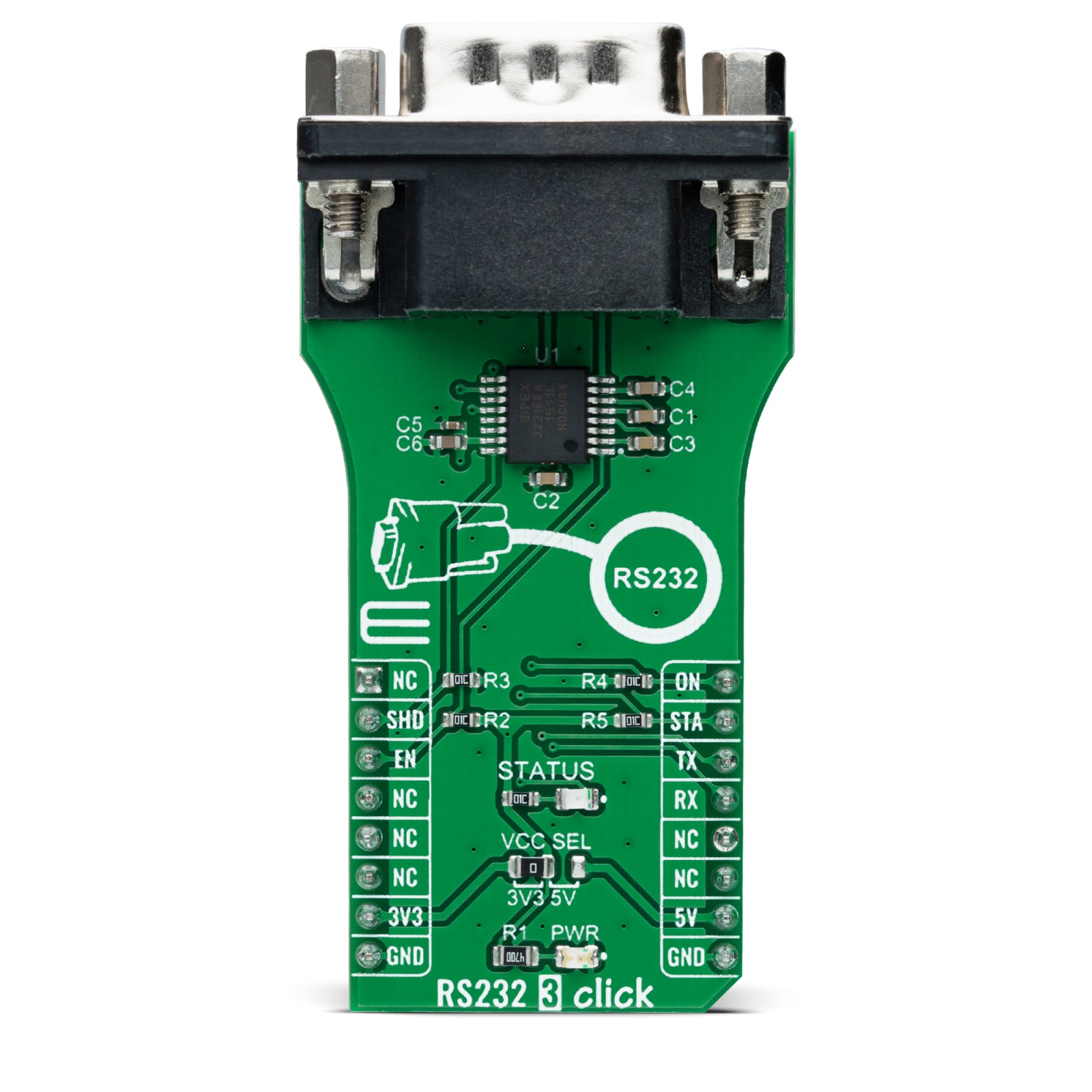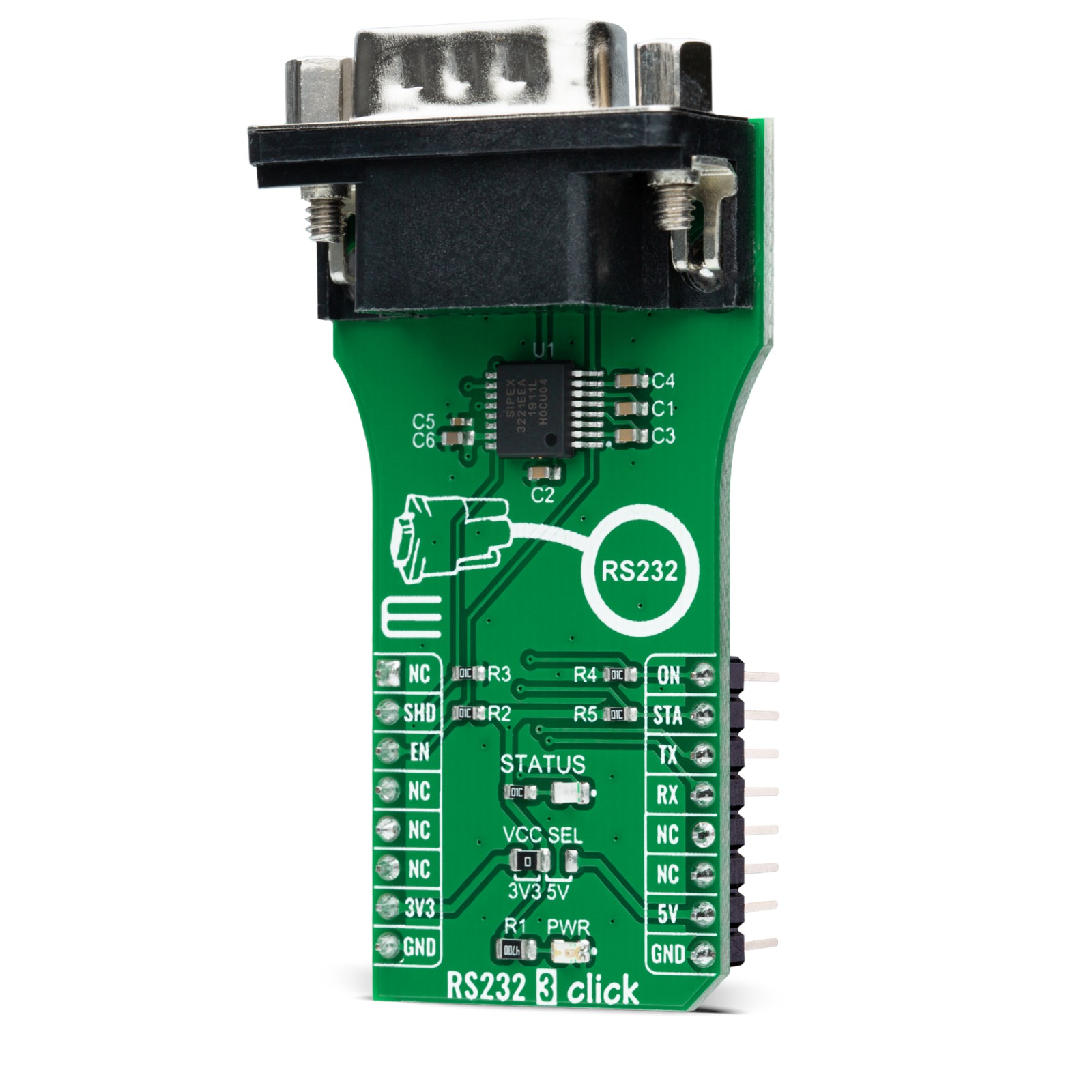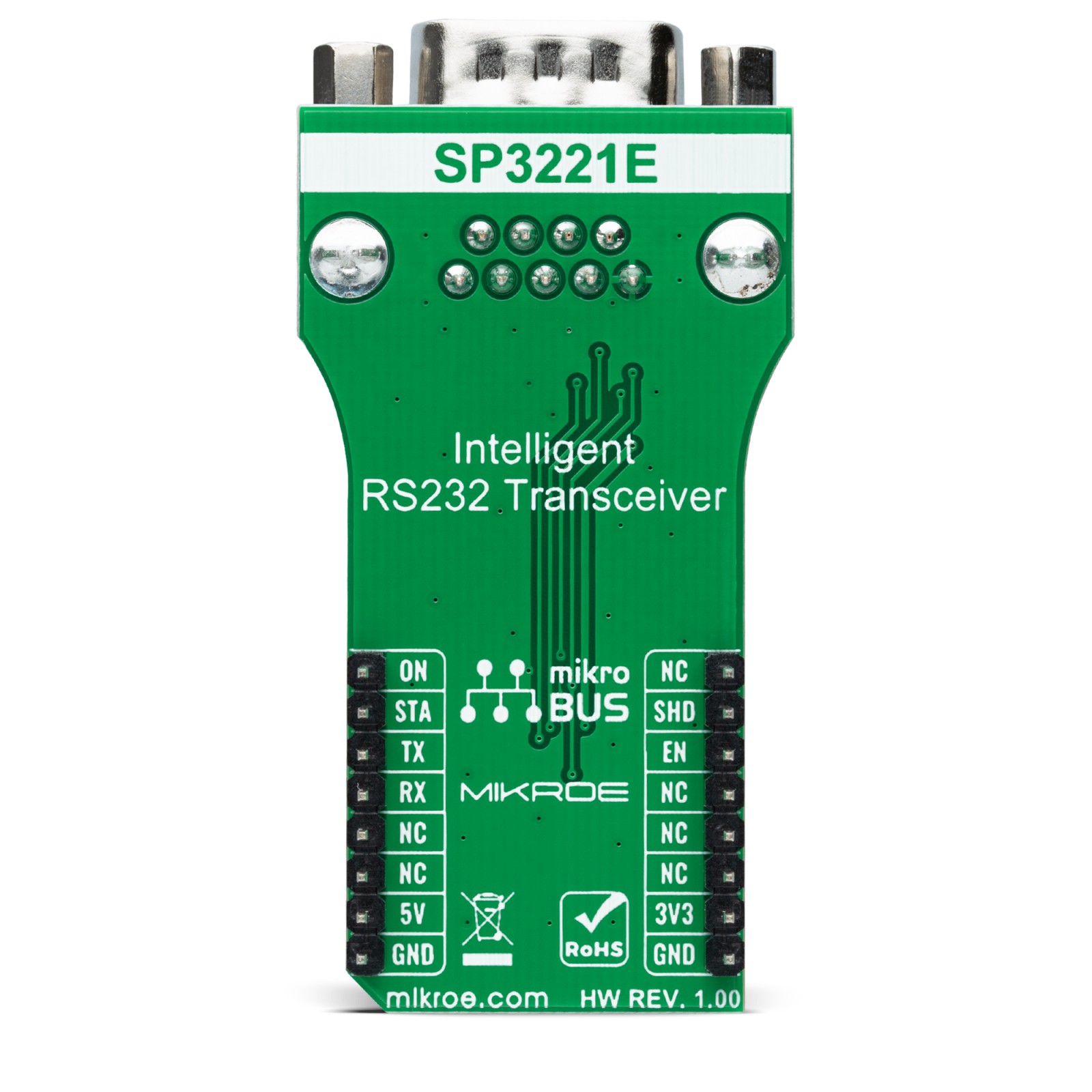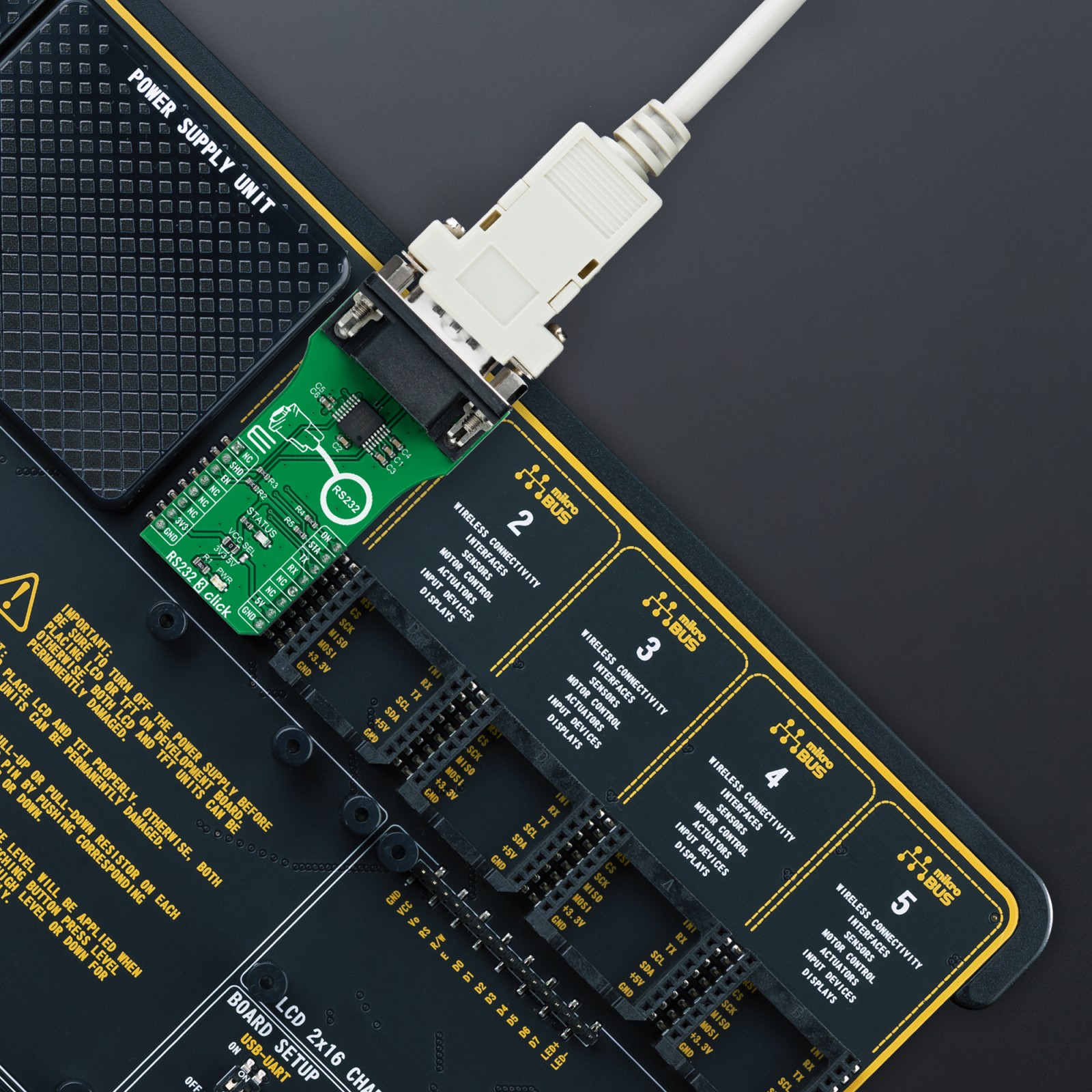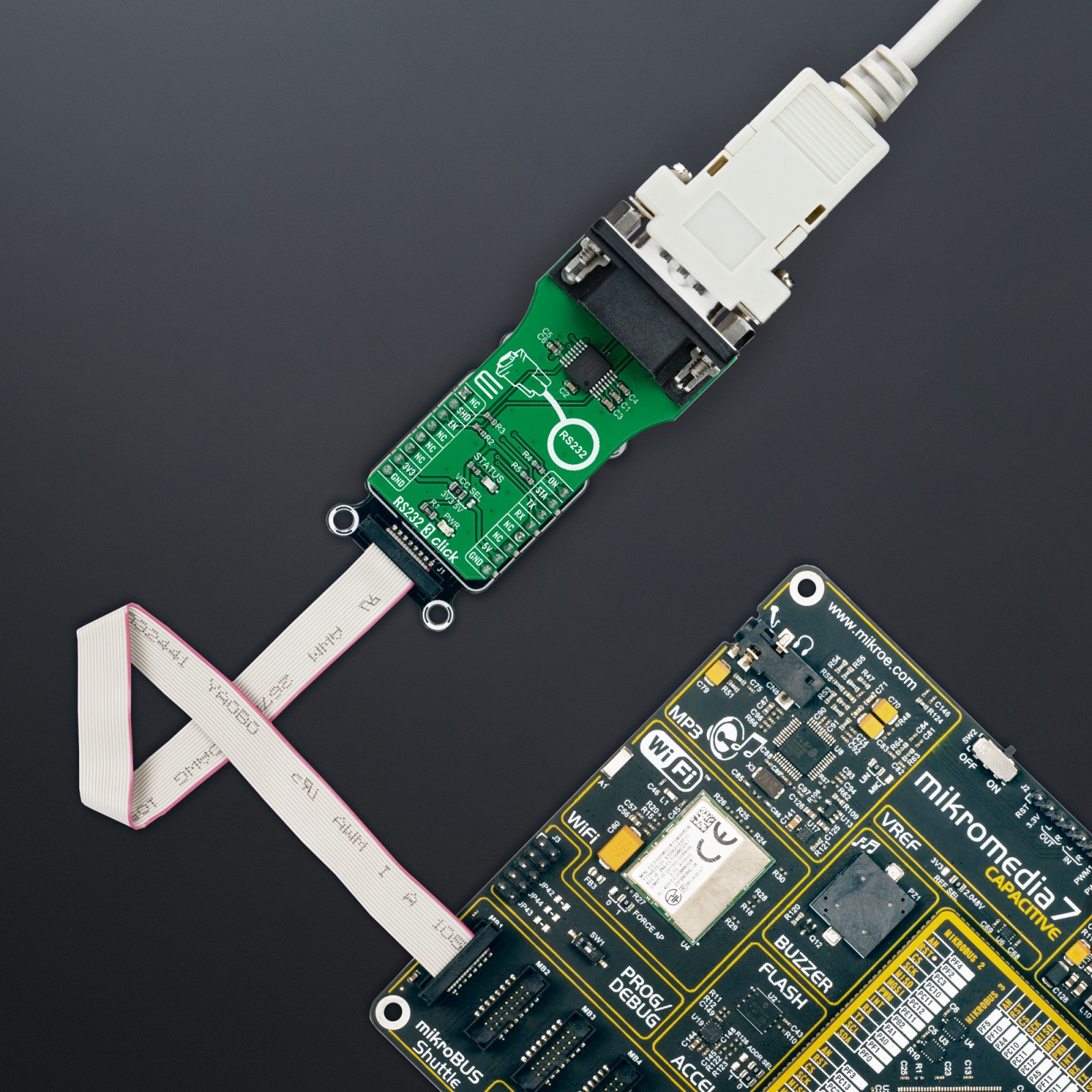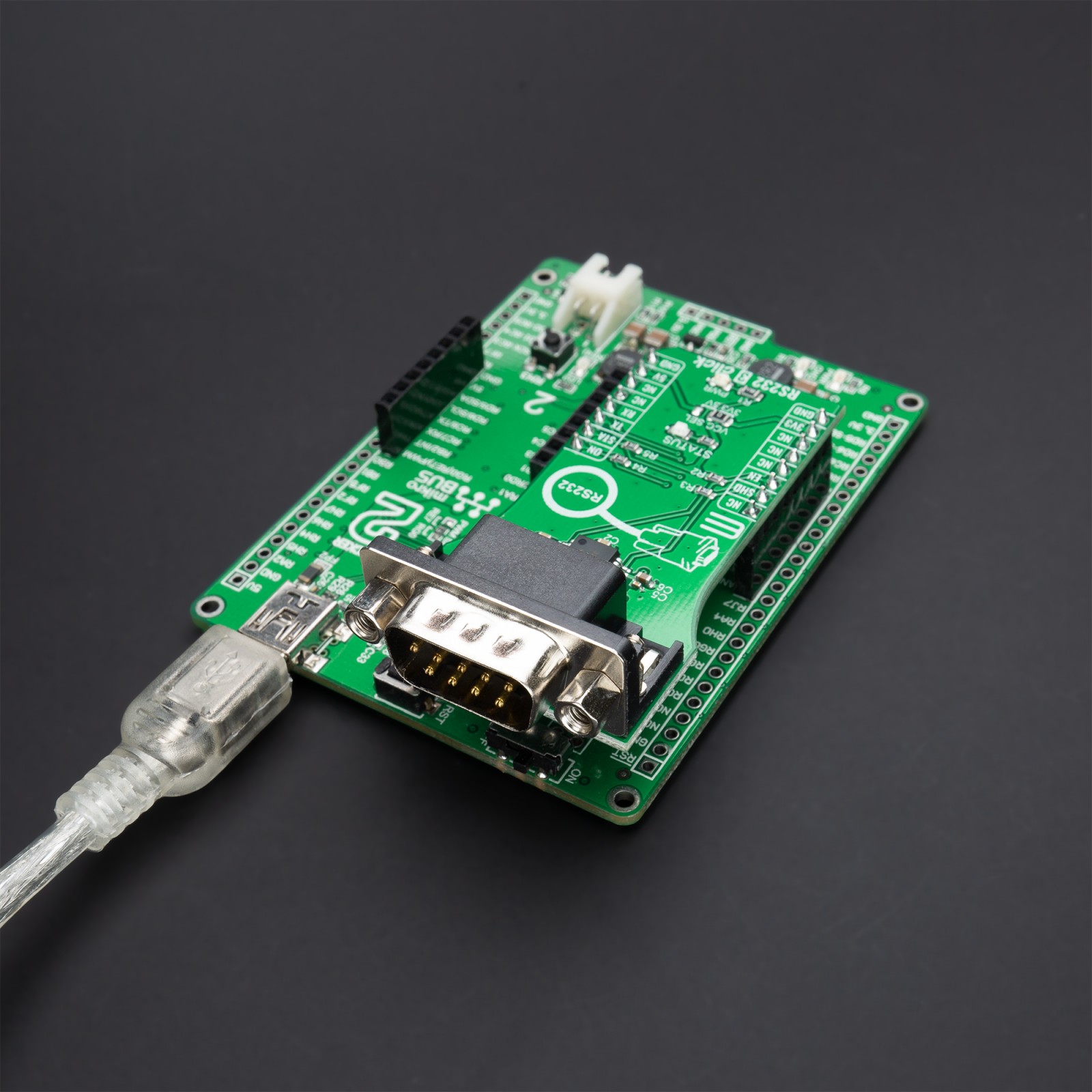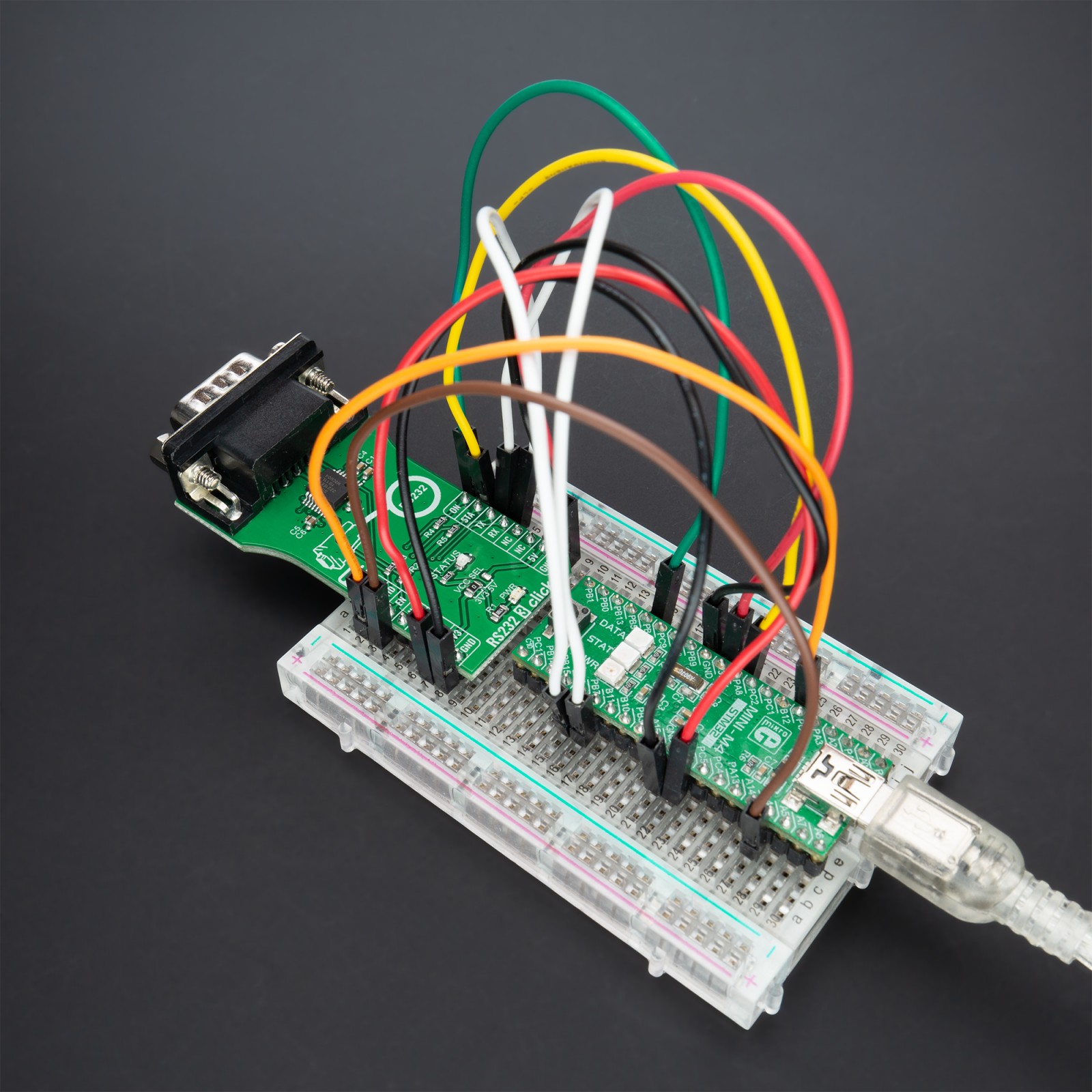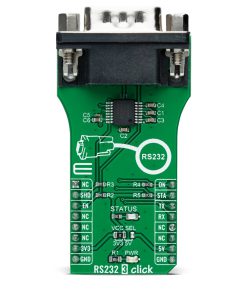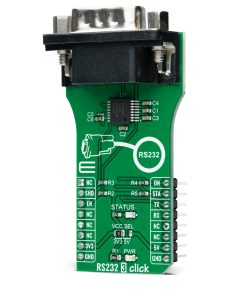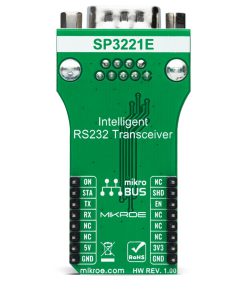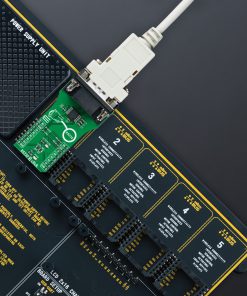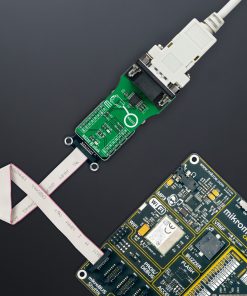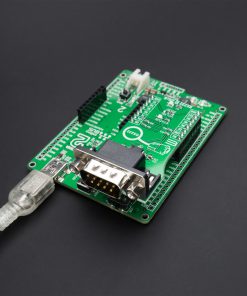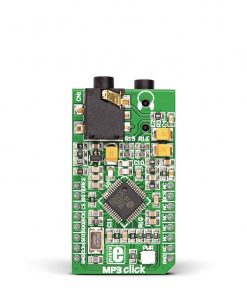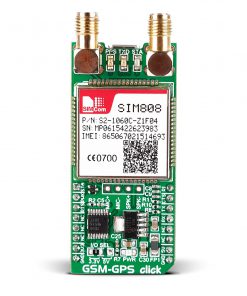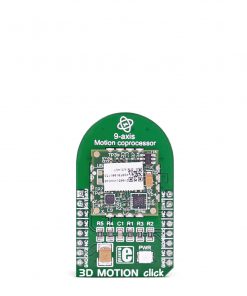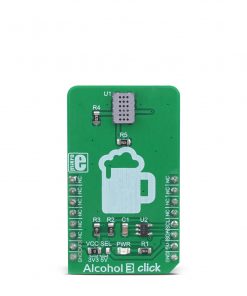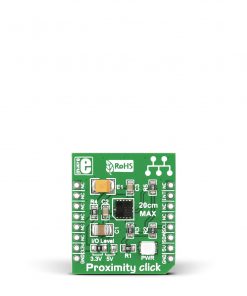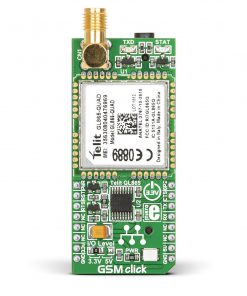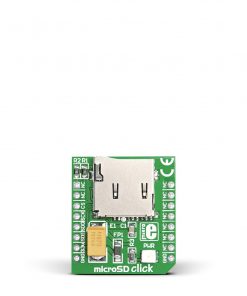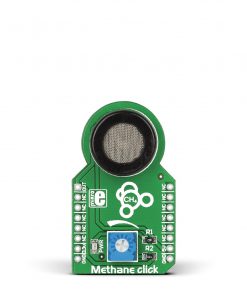RS232 3 Click
R315.00 ex. VAT
RS232 3 Click is a compact add-on board representing a universal usable RS232 transceiver. This board features the SP3221E, a low-power RS232 transceiver from MaxLinear. The SP3221E uses an internal high-efficiency, charge-pump power supply and is compliant with EIA/TIA-232-F standards when powered by any of the mikroBUS™ power rails. The AUTO ON-LINE® feature allows the SP3221E to automatically “Wake-Up” from a Shutdown state when an RS232 cable is connected and a peripheral device is turned on. When not connected or not in use, the SP3221E will automatically shut down, drawing less supply current. This Click board™ is suitable for low-power serial communications, portable serial devices, point-of-sale equipment, and many more applications.
RS232 3 Click is supported by a mikroSDK compliant library, which includes functions that simplify software development. This Click board™ comes as a fully tested product, ready to be used on a system equipped with the mikroBUS™ socket.
Stock: Lead-time applicable.
| 5+ | R299.25 |
| 10+ | R283.50 |
| 15+ | R267.75 |
| 20+ | R257.67 |

